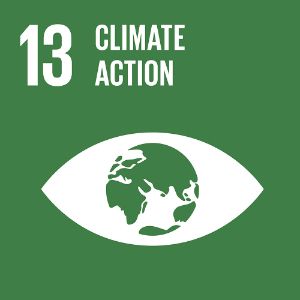Developing countries are disproportionately affected by climate change. Heat, droughts and water shortages hamper economic development and the way out of poverty for many people. As one of Austria's largest providers of international climate finance, OeEB supports developing and emerging countries in the fight against climate change.
Financing climate-friendly growth
OeEB is pursuing its efforts in the fight against climate change with particular vigor. In addition to an ambitious target in the area of climate-eligible investments, OeEB aims to align all its financial flows at project, portfolio and institutional level with the goals of the Paris Agreement ("Paris Alignment").
OeEB's focus on green finance
In the 2024-2028 strategy period, OeEB wishes to support its partners in developing countries as part of their transition to green, low-carbon and climate-resilient business models and thus help them achieve green economic growth.
The following topics are bundled in this focus area:
i. Climate protection
Includes the following project types:
- Avoidance, reduction or capture of greenhouse gas emissions, such as facilities for the generation, transmission, capture/storage and distribution of renewable energy,
- Increasing energy efficiency,
- Expansion of clean or climate-neutral mobility,
- Production of clean and efficient fuels from renewable or CO2 -neutral sources,
- Strengthening carbon sinks, including the restoration of climate-friendly mixed forests, sustainable management and restoration of arable land and green spaces, (taking biodiversity into account), as well as the renaturalisation and conservation of wetlands.
OeEB adheres to the EDFI harmonised list for the exclusion of fossil fuel-related projects . We also rule out participation in upstream- and midstream projects in the natural gas sector, in line with the current energy sector strategies of most IFIs. Downstream activities in low- and middle-income countries are considered on a case-by-case basis and may be considered as transitional technology in exceptional cases. This is subject to the condition that they are aligned with national climate action plans and contributions (nationally determined contributions, or NDCs) as well as long-term climate and decarbonisation strategies.
We categorically rule out participation in projects which are associated with nuclear energy.
ii. Climate change adaptation
Includes projects that reduce the adverse effects of the current or expected future climate on humans, the environment or assets, as well as mitigating the physical risks of climate change.
iii. Sustainable use and protection of water and marine resources
Includes projects such as water supply and wastewater treatment plants, or water efficiency measures in industry or agriculture.
iv. Transition to a circular economy
This includes projects in the areas of waste avoidance, reuse and recycling of raw materials and waste, including the necessary infrastructure.
v. Prevention and reduction of environmental pollution
Includes projects relating to environmental technology systems or measures that lead to the avoidance or reduction of emissions (pollutants) in the air, water and soil or prevent adverse effects in the production or use of chemicals.
vi. Protection and restoration of biodiversity and ecosystems
This includes projects such as sustainable land use and management, sustainable agricultural practices, sustainable forestry, including appropriate protection of biodiversity.
OeEB will continue to develop its expertise to meet the increasing demand for financing in developing countries in areas such as energy efficiency or as part of adaptation- or sink projects.
.jpg)